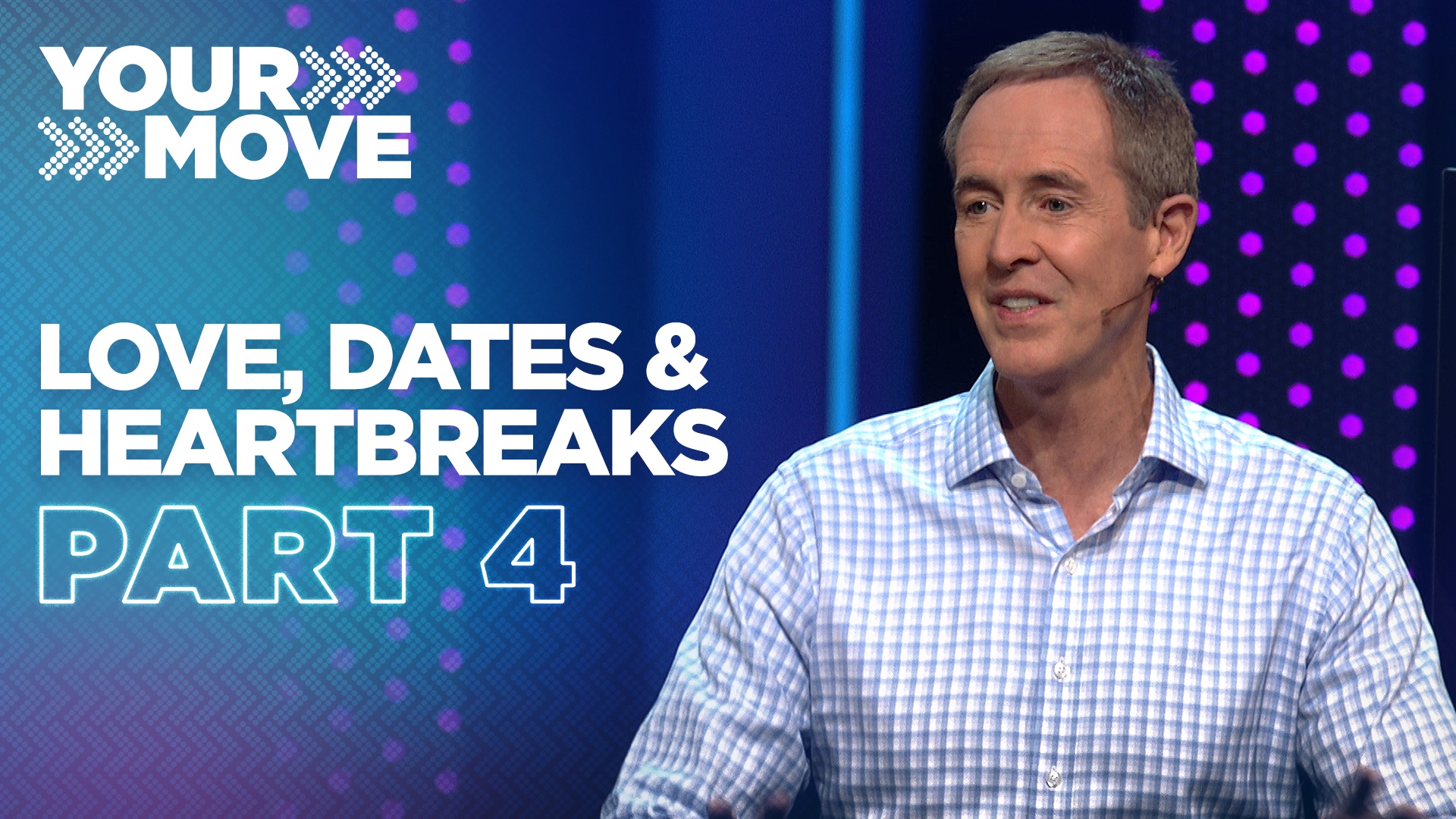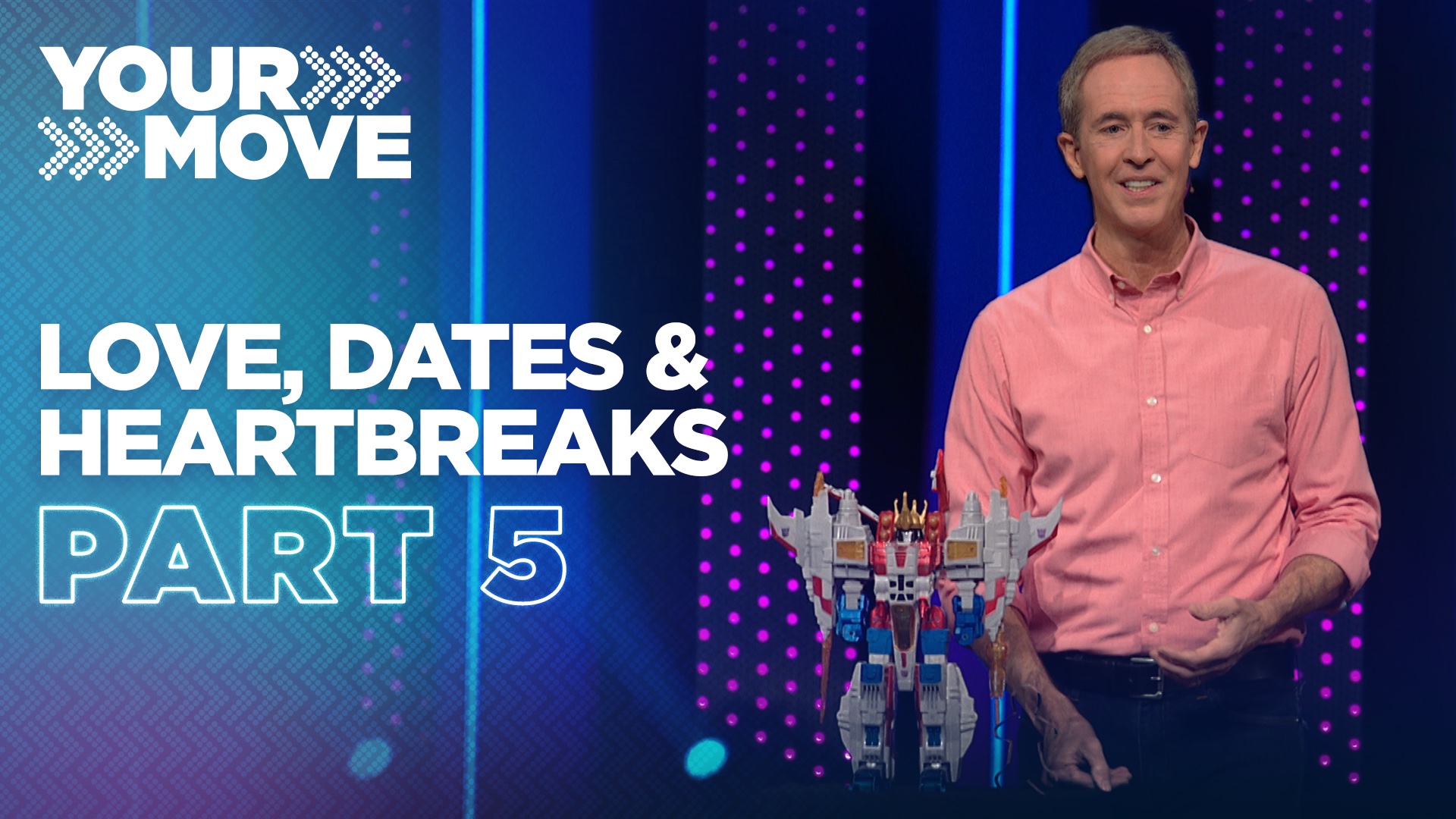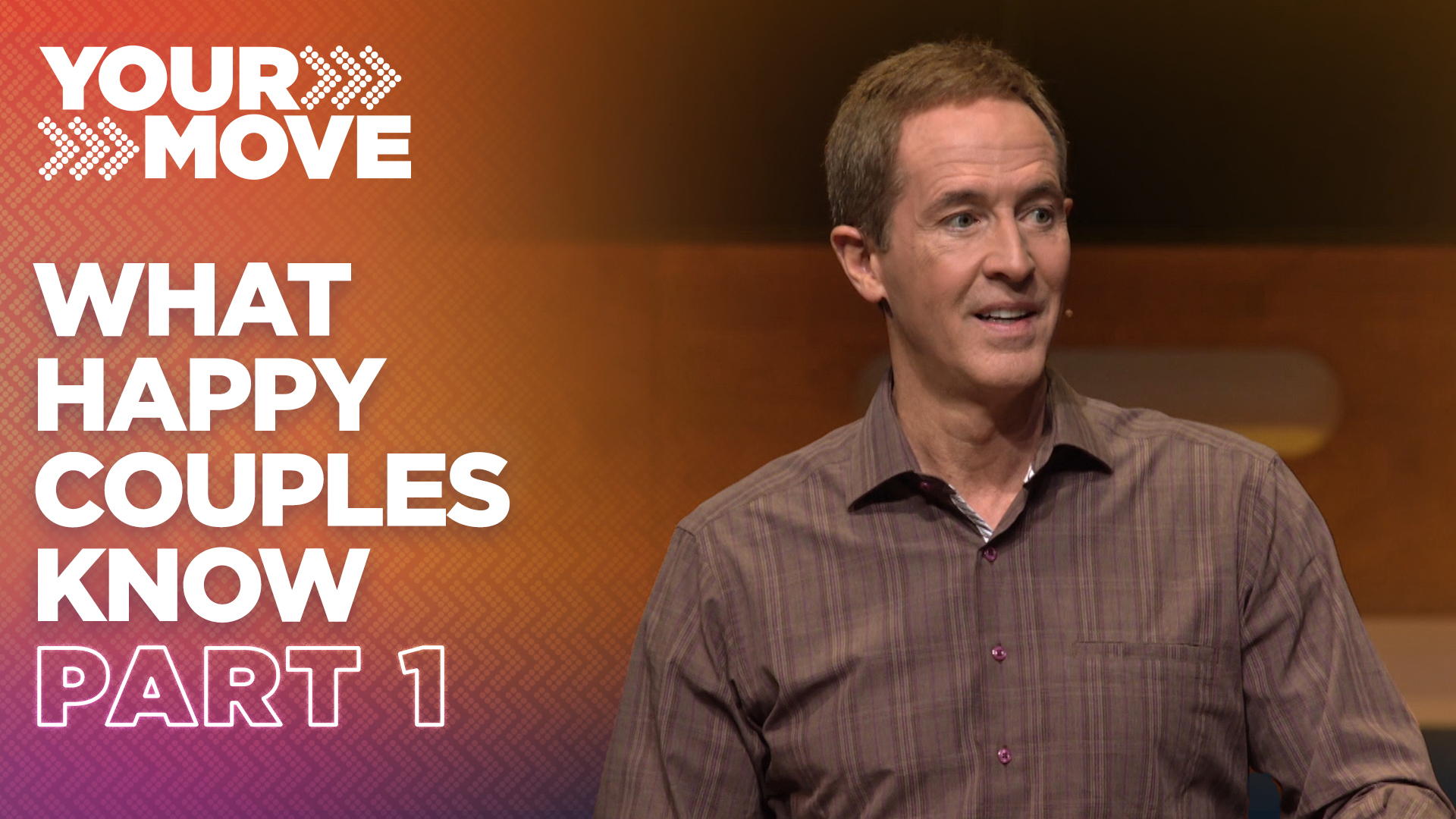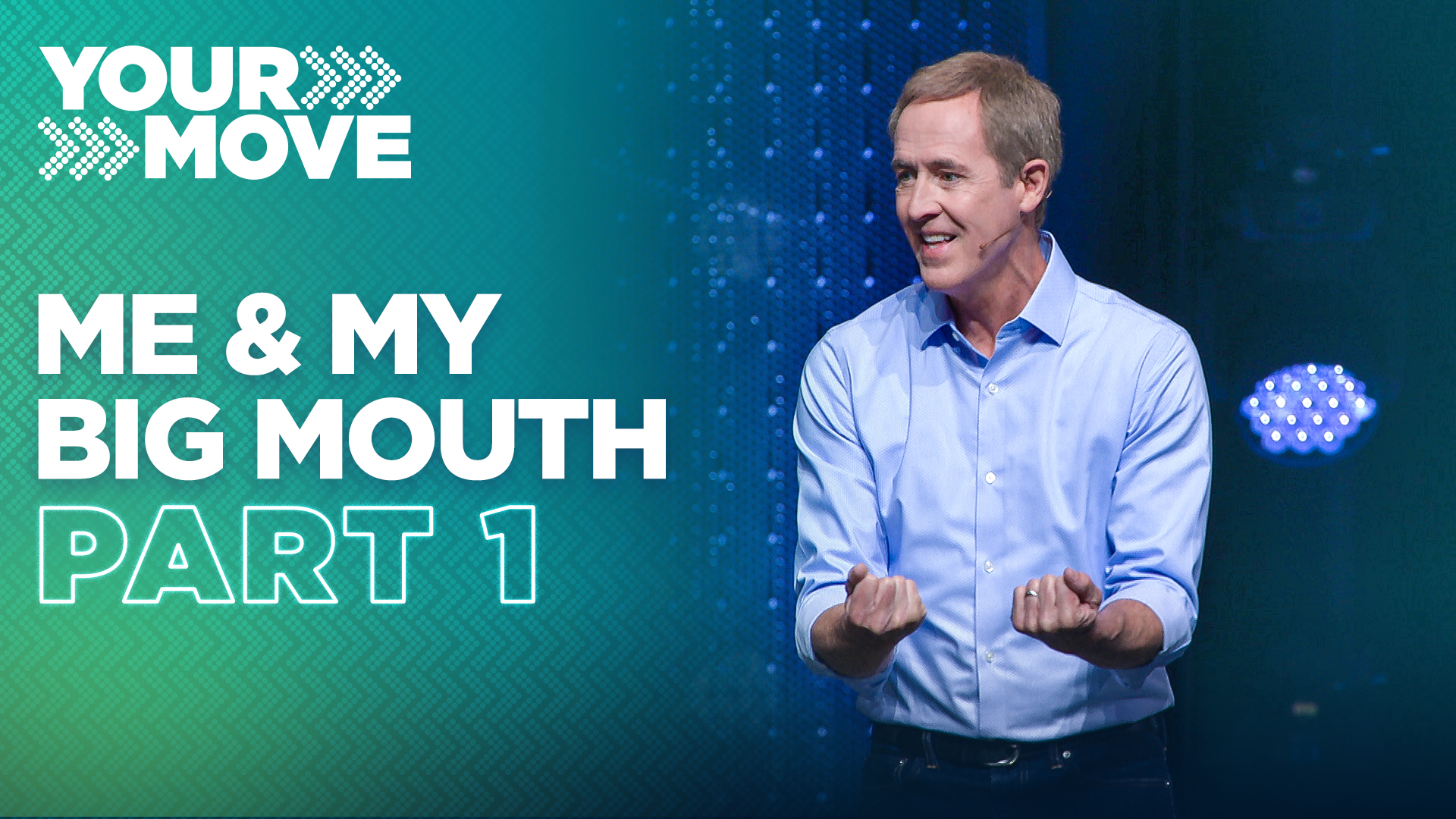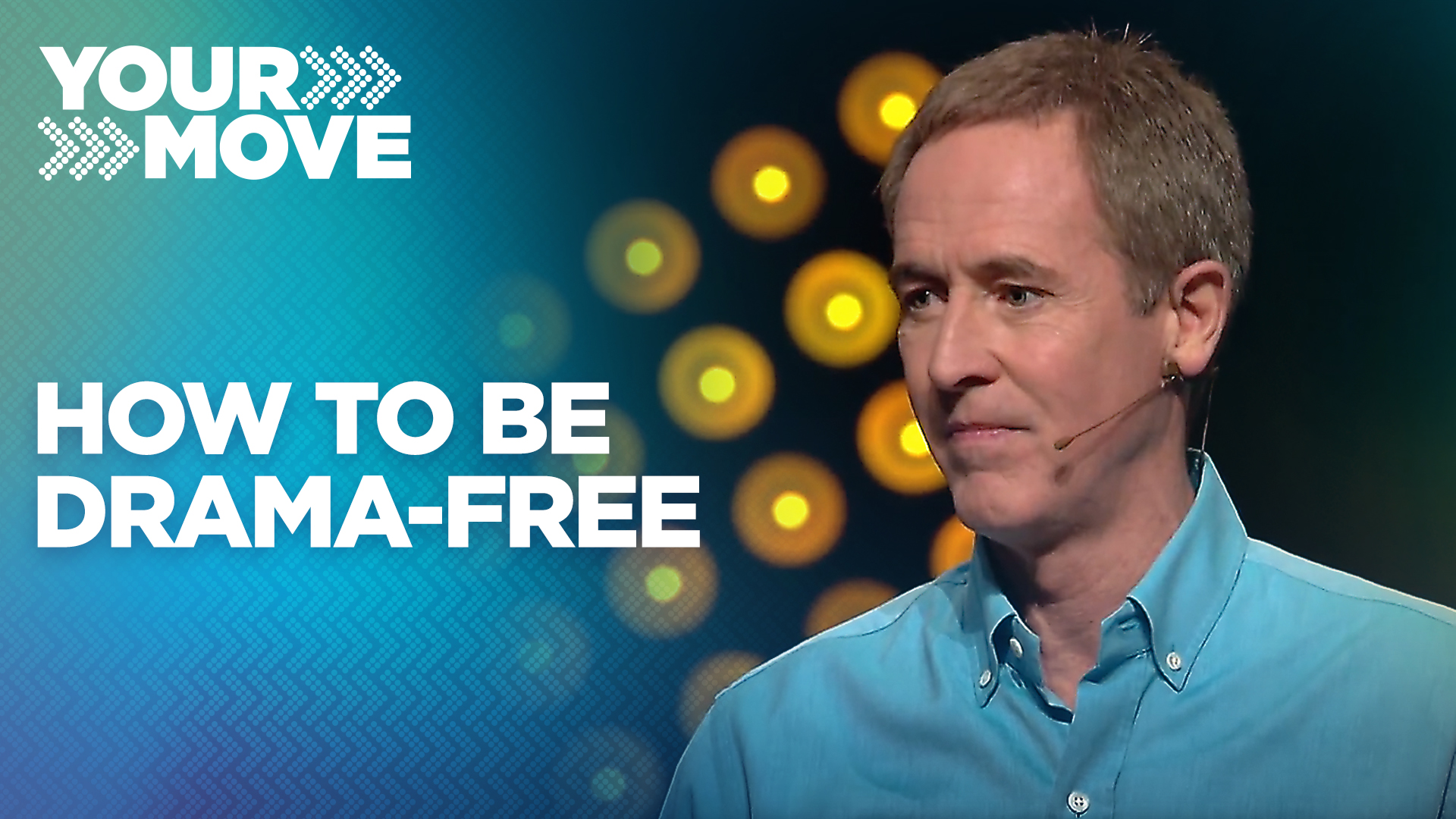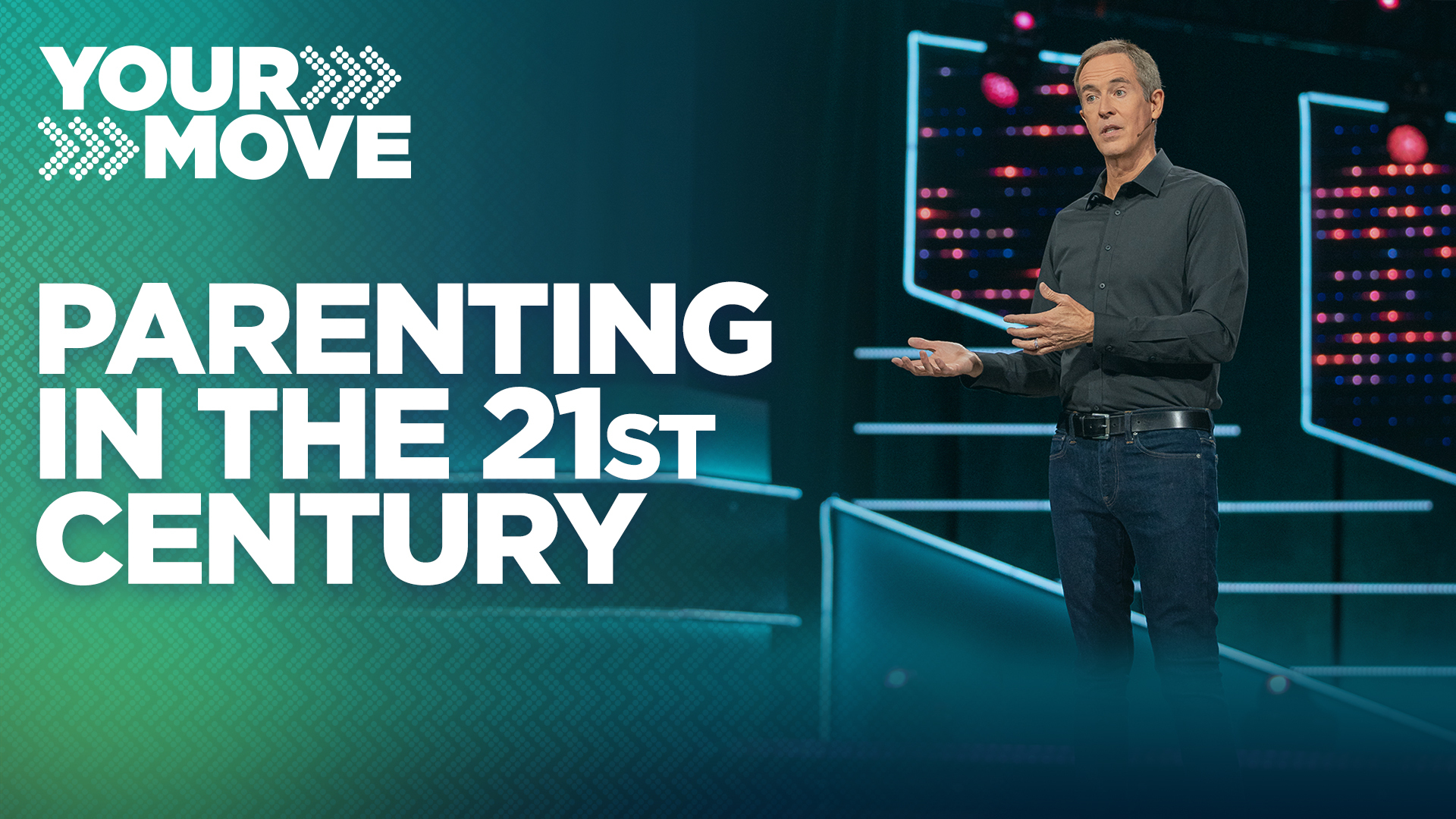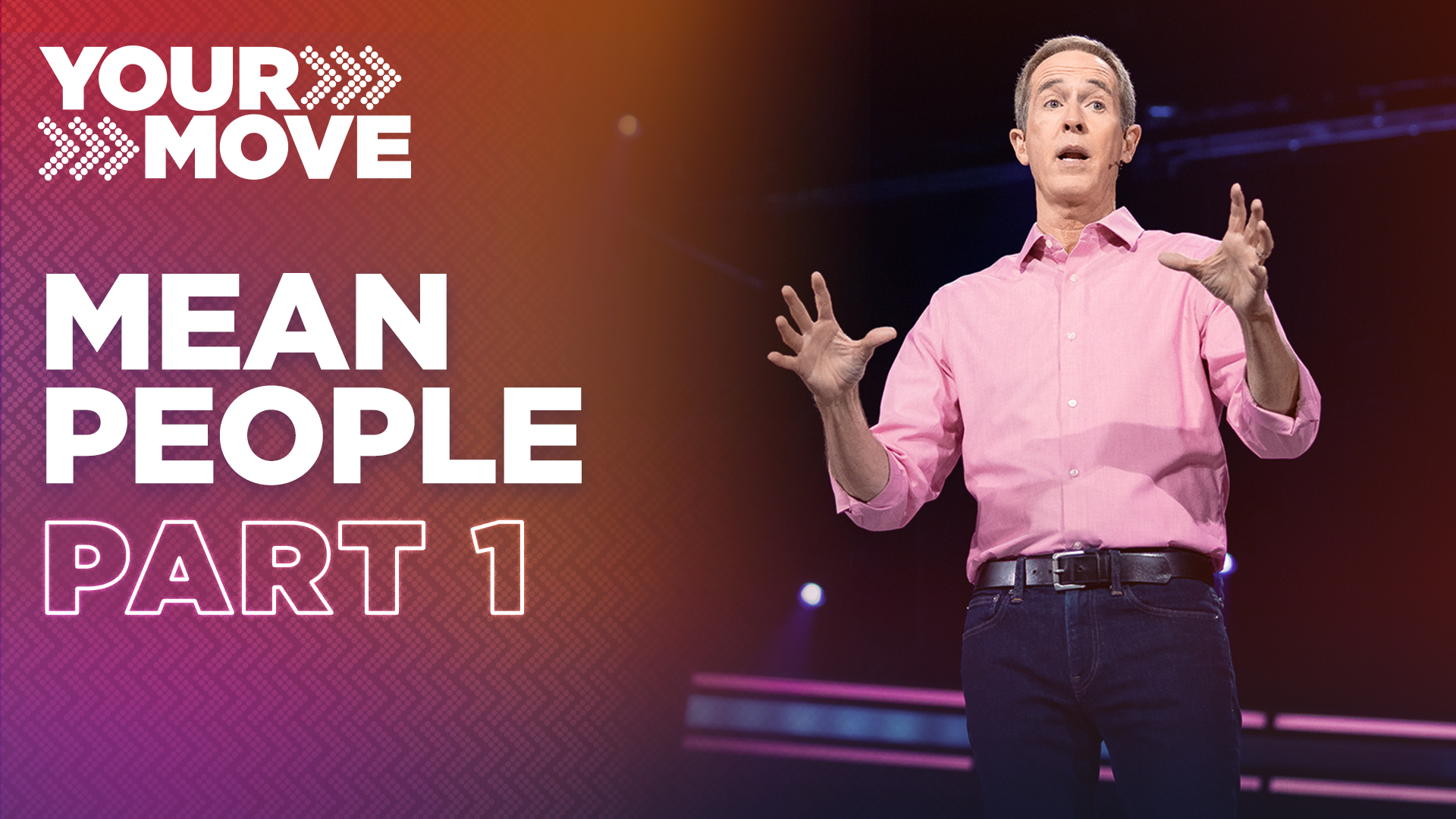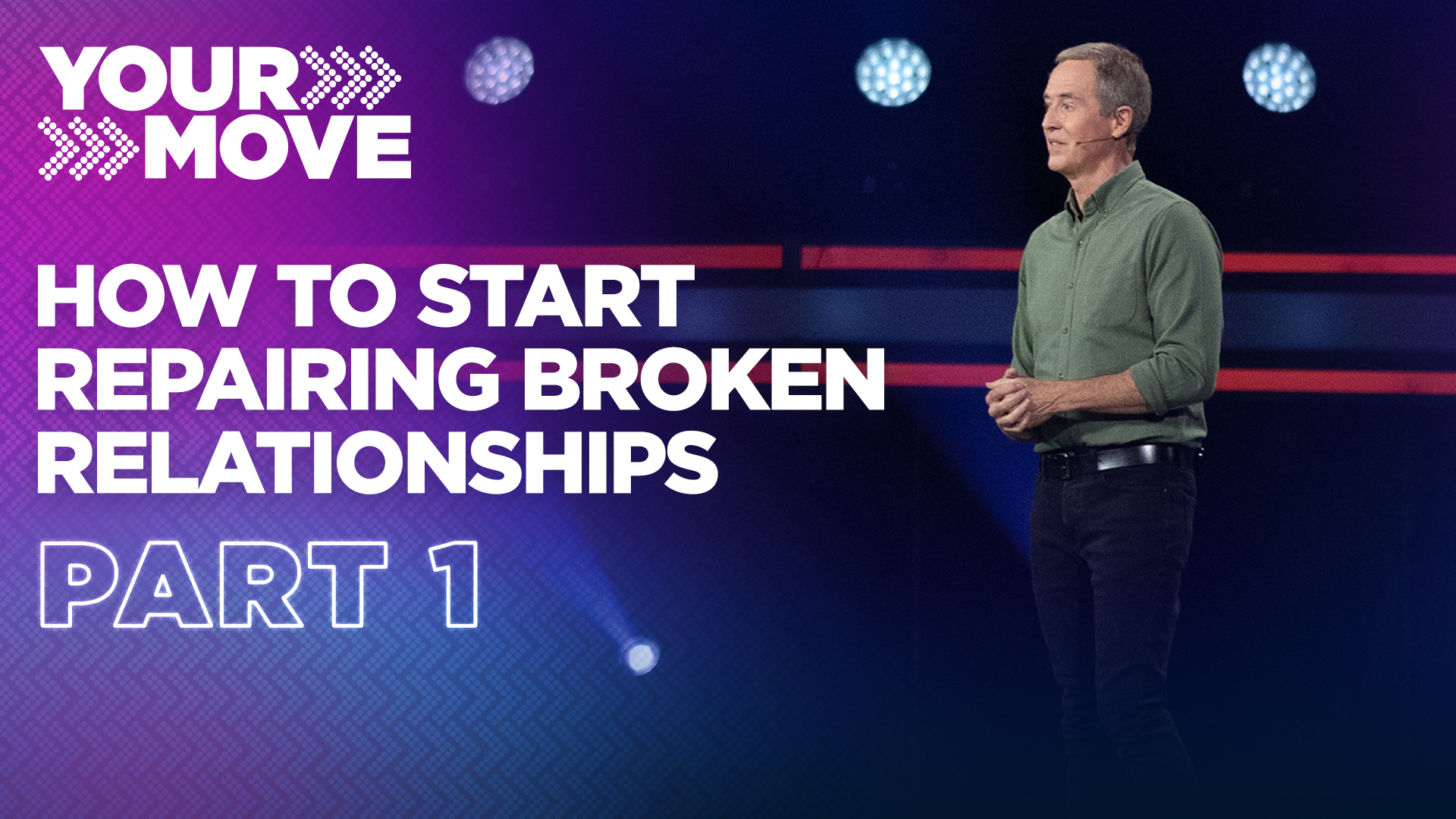Countless love stories and fairy tales focus on people finding love and living happily ever after. But how do we navigate relationships in the real world?
- As a child, what did you believe about romance and relationships? Which of these assumptions have proved to be untrue as an adult?
- The apostle Paul defined love based on what it is and what it isn’t. Do the traits he listed (found in the downloadable PDF) characterize the person you want to be? Do they describe the type of person you’re looking for in a relationship? Explain.
- What assumptions or myths about love do you need to let go of? How could Paul’s definition of love serve as the basis for understanding what “grown-up love” looks like?
NOTE: The following content is a raw transcript and has not been edited for grammar, punctuation, or word usage.
This is a series for anyone who’s dating anyone, who wants to date, anyone that used to date that finds himself dating again. If you’re married, there’s been something in this series for you, if you’re trying to make your marriage better, if you’re trying to make any relationship better, if you’re engaged, Love, Dates, and Heartbreaks.
This is something that’s near and dear to me because one of the things that breaks my heart is watching people make relationship decisions that undermine their relationships, or making relationship decisions in a current relationship that I know and that even they’re smart enough to know, you’re smart enough to know, is gonna undermine the integrity of a future relationship. And we said, week one, that much of the confusion when it comes to love and dates and the whole dating thing that’s so different than it used to be, are two myths and that they’re basically two myths that fuel pretty much all of our thinking when it comes to relationships.
And once we surface these myths, once we talk about them, they’re clearly myths. And so, the first myth was the “right person myth”. We said the “right person myth” is: Once you meet the right person, everything is gonna be all right. Including you. You’re just gonna magically change and become an incredible person once you meet the right person, and all of your problems, all of your habits, all of your insecurity is just gonna go away. The problem is you just haven’t met the right person. We said that’s a myth. And the truth is, we grow up isn’t this true? We grow up fantasizing about meeting the right person. We never spend a moment of time fantasizing about becoming the right person. But who you become often determines who you meet, and also determines the success of the relationship.
So I ask you this question. I’ll ask you, ask you the question throughout the series. Are you the person that the person you’re looking for is looking for? If you’re married, are you the person the person you married was hoping for? How much time and attention are you giving to becoming that person? Then we explored the promise myth. And the “promise myth” goes like this. A promise replaces the need for preparation. That unlike any other area of life when it comes to relationships, we don’t have to prepare. We can just promise. All you need is a promise and a party, and you’re good to go. A vow, a ring, and a party, and that’s all it takes; no preparation necessary. No matter what kind of person you were before, once you meet the right person, once you make a promise, a commitment, a vow, everything’s gonna work out fine. But a promise, we know this, a promise is no substitute for preparation. We know this in every arena of life.
Saying “I do,” saying “I do” makes you accountable; it doesn’t necessarily make you capable. And I’m gonna let you fill in the blank. When you are accountable, but not capable eventually, you’ll be miserable. Yes, when you find yourself accountable for something you’re not capable of doing ultimately you are miserable. And this is why we said, this is why “Following Jesus won’t just make your life better, following Jesus will ultimately make you better at life.”
Because I don’t know if you heard this growing up, or if you grew up in a church where they presented the whole Jesus thing differently but when you read the New Testament, here’s what you discover, Jesus did not invite us to pray to him. Jesus did not invite us to promise to him. Jesus did not invite us to negotiate with him. Jesus invites us to follow him. And if we were to say, “Jesus, if I’m gonna follow you, where are you gonna take me?” He would say, “This is my command, and everything beyond this command is commentary and application. Everything hangs on this one big idea.” He says, “I want you to love each other; not the way you’ve seen love work, not the way you imagine love will work. I want you to love each other as I have loved you.”
Which didn’t make any sense when he said this. But after the crucifixion and after the resurrection, his first century followers were like, “Oh, now we get it. This is a love of another kind. This is a whole another kind of love because Jesus laid down his life for his followers. He said. “Now, I want you to love me, but I’m leaving. I want you to take the love I demonstrated for you, and I want you to demonstrate it for this world and I want you to demonstrate it, act it out, live it out in your relationships. So love as I have loved you.” Then the Apostle Paul comes along; he’s a Pharisee, becomes a Jesus follower, decides to take the message of Jesus to non-Jewish people, and he begins spreading this message of the Gospel that God came through Christ to do something extraordinary for the world, demonstrated his love for us.
And then he teases out this one command. What does it look like to love as God through Christ loved us? So in all of his letters and all of his letters, there’s Romans or Second Corinthians, Ephesians, Philippians, Colossians, all of those letters, you’ll find throughout Paul’s letters, he comes back to this simple theme. And he ties all of his, “here’s how a Christian should live” to the idea of here’s what God did for us through Christ. And he teases out or defines what it looks like to love other people and to love each other the way God through Christ loved us.
So he actually defines this for us. He’s not giving us a to-do list. He’s giving us applications of what it means to love as God in Christ loved each of us. So the Apostle Paul comes along and he unpacks this for us. He unpacks Jesus’ new command. He says, “This is what love looks like.” So I’m gonna review last week, really quick, then we’re gonna jump into the new part of the fine print. You remember the first one. He says, “Love is patient, love’s not pushy.” Just like God accommodated to your capacity and to your pace, you are to accommodate to the capacity and the pace of those around you.
Love is kind; love is basically loaning another person your strength. Instead of reminding them of their weakness again just like God did for you. Love does not envy. He says it does not envy, it does not boast, it’s not proud. Love allows the other person to shine. Love doesn’t have to step in the spotlight all the time. Love is able to push the other person in the spotlight and stay out of the spotlight. Love allows the other person to get the credit and the attention even when they don’t deserve the credit and the attention. Because, after all, even the Son of Man, your Savior, even the Son of Man did not come to stand in the spotlight. “Even the Son of Man,” Jesus said, “did not come to be served, but to serve and to give his life a ransom for many.” As his followers, that’s what we’re to do.
It does not, we saw last week, it does not dishonor others. Love does not behave dishonorably. Love does not behave dishonorably, disgracefully, or indecently. It treats other people, we talked about this, love treats the other person like they are more important than we are. They’re not more important. We just treat them like they are. And as we demonstrated last time we were together, every single person in this room, every single person watching or listening, we know how to do this; we know how to treat a person as if they are more important than us. And God says, “I want you to treat people like they’re more important than you because I treated you like you like you were more important than me. I sent my son to pay for not all the good things you did. I sent my son to pay for your sin. At that moment I put you ahead of me. Now, if you’re gonna follow me, I want you to put others ahead of you, not because they’re better, not because they deserve it. In fact, the less deserving they are, the better it is.”
We’re gonna pick up where we left off last week, in the fine print. Here’s what Paul says next. He sort of stays on this same theme. Love is not self-seeking. We don’t use that phrase. Here’s how we say it, Love is not selfish. Love puts the interest and the needs of others first. Love puts the interest and the needs of others first. Love puts the interest… “What are you interested in? I would love to spend 30 minutes telling you what I am interested in. What are you interested in? You talk. Your story.” Love puts the interests and the needs of others first, which let’s face it, we’re all smart enough to know this, would solve 90% of all relationship problems, right?
If two people decide to put the other person first, there are no relationship problems other than, “Okay, you first. No, you first. No, you first, no you first.” Okay, but that’s a good problem, okay, right? So if two people decide to put the other person first that solves most relationship problems and here’s why. Because in most relationship problems, there’s a theme. In fact in most relationships, in most arguments, in fact, in all arguments the two people arguing actually both want the same thing; they want their way.
That’s what they want, right? The person you have the most arguments with, you have something in common, you both want your way. This is why I’ve told you in the past, and I wasn’t kidding, in the middle of an argument, especially if you’re dating someone or you’re engaged or you’re married you should stop in the middle and say, “Hey you know what the problem is here?” You’ve heard me say this, “You know what the problem is here? I’m not getting what I want.” I mean, that shuts down the whole argument because if they have any sense of self-understanding, they would stop and say, “Well that is part of the problem because I’m not getting what I want either.” And when two people could recognize the problem is, both of us aren’t getting what I want. Then you can talk, you can work through this, but this begins with a commitment not to be selfish.
Now, little tip for those of you who are dating. The best way or the quickest way to find out how self-seeking the person, you’re dating is, is for you to be not self-seeking and not to be selfish. In other words, if you’ll practice this, if you’ll practice this 100%, then you’ll discover very quickly how selfish or how self-centered the other person is. And here’s what I mean. If you give and give and give and they take and take and take, then you’ll know it’s time to run and run and run. [laughter] Okay?
[laughter]
He goes on, it says this, “Love is not easily angered.” And I highlight “easily” because everybody gets angered at some point, right? Anger is it’s impossible to 100% avoid anger, but he says, “Look if you’re gonna love like God through Christ loved you, you’re not gonna be easily angered.” And the little Greek word angered actually was a cooking term. It means to be stirred up, stirred up. In fact, you might even… You probably don’t use this language, but in the past, people would say things like this, “I was so stirred up; I wanted to scream.” Have you ever had people stir you up? It’s just like, “stirring you up.” That’s what it means to be angry.
And the apostle Paul says, “Okay, when you decide to love like God through Christ loved you, you will not be easily stirred up; you will not be easily angered because love doesn’t get wound up or ticked off easily. Love can listen. Love… This is my favorite word. This was my word as a parent when my kids were going through middle school and high school that I had to learn, that love absorbs, that sometimes you have to sit and just take it in, and just take it in, not reflect it back. Not pretend like it’s not true, you just absorb it. You know what to absorb means? We’ve seen a liquid be absorbed into something. Did you know… You know this. Energy can be absorbed as well, right?
And when we’re in a difficult conversation with someone we love, or that loves us, there’s times when you just have to absorb their energy. Love doesn’t react. Love responds and I’ll tell you why. Because love, love puts the other person, this is key, love puts the other person’s story ahead of their own story. Because isn’t it true, when someone’s angry or when somebody is saying things that are beginning to make you angry, isn’t it true that the conflict is a round story? This is my story, this is the way I see it, this is what I experienced, this is how I… No, this is how I, this is how I experience, this is what I saw, this is what I heard, this is what I… It’s all about story.
So in those moments, love realizes, “You know what, we have different stories; we have different stories around the same event. So I am going to listen to your story. I’m gonna put your story, your version of the events ahead of my own because love remembers, love remembers that everybody’s behavior makes perfect sense to them. Everybody’s behavior makes perfect sense to them, and when their behavior doesn’t make sense to you, it’s because you don’t know something. So love absorbs and love listens and love prioritizes the other person’s story. Because after all she may push your buttons, but those are your buttons. He may tick you off, but those are your ticks. That doesn’t really work as well, but anyway, [laughter] you can see what I’m saying. Okay, in other words, here’s the thing, here’s the question, I guess, to ask, “Are you easily angered? Are you easily angered? Do you realize that’s a you issue? That’s a love issue. Are you easily angered?
It’s time that you begin to practice absorbing and understanding and listening. And I know what you’re thinking. Okay, this is what people think, it’s certain seasons of their life. “But Andy, okay, look the right person won’t make me angry! Okay, I just have to… The reason I’m so angry is she’s not right for me, he’s not right for me. I need to find somebody who won’t make me angry because when I find the right person,” there’s the myth”. When I find the right person, I’m not gonna have to practice not being easily angered, when I find the right person they’re not even gonna make me angry.”
And you know what? That’s true. They won’t make you angry. But did you know no one has ever made you angry? They’ve just brought the anger out of you. And to follow Jesus is to learn to deal with what’s in you before it comes out of you, and to learn to absorb rather than reflect and deflect and respond in like kind. You know what, for some of us, this is not an issue. For others of us, this is a big issue. But at the end of the day, it’s a you issue. He goes on, how did he know this? Right? It’s like when was this written? Yesterday? No, 2,000 years ago, you should read the Bible, occasionally; it’s great. Anyway, he goes on, it says this, he says, “Love keeps no record of wrongs.” In other words, love doesn’t have the file drawer. “Hold on just a second, October 3rd at 3:30, you did the same thing. We’ve already talked about this, put it back in the file, but now I have another something else to put in the file.” Right?
Love doesn’t do that. This is kind of funny thing? Have you noticed this? That relational record-keepers, they rarely keep track of their own records. [laughter] Have you noticed that? They got all kind of files on you, but they can’t remember anything they’ve done wrong. In fact, the more memory they have about your past faults and failures, the less memory they have of their own. In fact you have thought this, in fact, you made the mistake of saying it one time. “Well, I guess you’re never wrong.” They’re like, “Hold on a second. You always say that. I have eight times that you have said that, ‘you’re always wrong’. And now I have a ninth right?” You just can’t win. Okay.
Let’s talk about you for a second. Be honest, you don’t have to answer this out loud. Do you enjoy catching your fiancée, do you enjoy catching your girlfriend, do you enjoy catching your spouse messing up? Is there something that’s in you is like, “Okay I’m gonna bring it up gently, but I’m gonna bring it up.” Is there any sense of “aha”, in you? Do you enjoy catching them messing up? That’s messed up. Stop it. Here’s why I say stop it.
Not because the Bible says so, not because I think I’m the boss of you, stop it because that’s not what God does for you. In this whole new way of living, this whole new way of loving is taking our cue from our Heavenly Father, who sent his Son into this world, to deal once and for all with our sin and he’s got a file cabinet on you a mile long. He never opens it, and he hasn’t forgotten. He just doesn’t bring it up. He says, “Now I want you to go do that for other people.” “Well, that’s difficult.” Of course, it’s difficult. All of this is difficult, none of this is natural, it’s just better.
None of this is easy; it’s just better. That’s why following Jesus will make your life better; it will make you better at life. He says, “Don’t come and try to be exactly like me. I just want you to follow me. And over time, you’ll fall into the rhythm of a brand new way of thinking about life and love. In particular forgiving, forgiving and then pretending to forget is always your best bet. ‘Cause remember this, this is important. You can be, and if you’re a parent, in any relationship you can be exactly right and end up exactly alone. You can be exactly… In other words, you can be right about what you say 100% of the time, and no one will want to live with you.
And it won’t be because you’re wrong, it’s because you were always right and you were right too often and you just couldn’t shut that stupid cabinet and leave it shut. You kept bringing up the past and you were 100% right; your details, your notes, your dates, your memory. It was perfect. And nobody wants to be around you. And your Heavenly Father says, “There’s a better way. I want you to forgive and then live like you’ve forgotten because that’s what I did for you. “As far as the east is from the west, so far have I removed my transgressions from you.” “As far as the east is from the west, so far has he removed your transgressions from you,” and from his memory. Besides, come on, let’s be honest, and I’ll move on. Besides it’s a power play. The moment you reach for that handle, it’s a power play. Why? Because when someone holds the past over your head who is in the elevated position?
The moment somebody begins to remind you of your past, who is in the elevated position? Love does not power up. Love always steps down. Paul said it this way, “Jesus. Jesus made himself nothing by taking the very nature of a servant.” And he says, “Now, follow me. Follow me into your marriage. Follow me into that relationship. Follow me as a parent. Follow me as a boss. Follow me as an employee. Take this kingdom values, these kingdom values take this kingdom mindset. Take this upside down way of approaching life into every relationship you’re in. Then Paul wraps it up, he kind of wraps it up with this big, big, giant sort of game-changing idea. Here’s what he says, he says, “Here’s the finale,” here’s like the fireworks display when they all go off at one time and everybody’s like, “Oh.”
Okay, here it is, here’s the finale. “Love,” he says, “does not delight in evil but rejoices with the truth, It always protects.” And then he’s gonna give us a list, he says, “It always protects.” I love this, always protects means it keeps bad things out. Love always looks for a way to keep bad things out of a relationship, which means, I don’t know, this is harsh. If you are smuggling bad things into a relationship, if you have smuggled bad things into a marriage, if you are smuggling debt into a marriage and they don’t know about it, if you are smuggling a habit into a relationship, if you’re smuggling a habit into your marriage, if you’re bringing something in that has the potential to undermine the marriage, you are not protecting that relationship.
He says, protect that relationship. Don’t look for ways to smuggle things in. And then the fireworks go off. “Love does not delight in evil but rejoices with the truth. It always protects. It always trusts. It always hopes, and it always perseveres.” Love it’s always a choice, right? Love chooses to see the best. Love chooses to hope the best. Love chooses to believe the best. And then love chooses to overlook the rest. Love catches people and enjoys catching people doing good and doing right. It always hopes. It always believes. It always perseveres. Love chooses. We’ve talked about this, a generous explanation for the gaps.
Here’s all the fine print at one time. Here it is. He says, “This is what it looks like. It’s patient. Love is patient, kind, not jealous, not arrogant, honoring selfless, not easily angered, not a score keeper, protecting, trusting, hopeful and persevering.” And if you’re like me, when you look at this list, you think, “Well, then I get about a C minus or maybe a D plus, or at times a B minus if I’m really on my good behavior. But Andy, come on. I will never be all of that for anybody. You gotta be kidding If this is how we get an A. I’ll never make an A, I’ll never make the grade. I will never be all of that for anyone.” And I understand that; we’re gonna talk about that in the next couple of weeks.
But here’s what I want you to acknowledge. Isn’t this what you’re looking for? If you’re married isn’t this what you were hoping for? I’m gonna give you a chance to evaluate real quick, I’m gonna read the list again and I want you to mark off the list the things that you aren’t looking for and aren’t hoping for in the person you married, okay? I just want you to make a mental list of the ones that aren’t important. And then this afternoon, over lunch or tonight over dinner, just say, “Okay, there were five things on there. I don’t expect of you. Patience, yeah. Kindness, that’s important. Not jealous, yeah. Not arrogant, I’m for that. Honoring, oh yeah definitely. Selfless, of course. Not easily angered, for sure. Not a scorekeeper, I don’t want a scorekeeper. Protecting, yeah I want her to protect this relationship. Trusting, yeah I want him to trust me. Hopeful yeah, I don’t want him to despair and hang in there with me. Yeah, I’ll take all those, but I don’t know if I can be all those.”
That’s the beauty of following Jesus because he says, “Follow me. And if you ever wonder where we’re going, here’s where we’re going. If you ever wonder what it looks like, read the Gospel of John or the Gospel of Luke or the Gospel of Mark or the Gospel of Matthew. And if you ever wonder if you’ll get there, remember this, I want to complete in you what I have begun in you.” See my hunch is, the person you’re looking for wouldn’t strike anything off this list, just like you wouldn’t take anything off the list, right? So, now that you know what you’re looking for, now that we know what we’re hoping for, perhaps we should get busy preparing for the relationship that we’re in, or preparing for the relationship we hope to be in some day, right?
Or if you’re married, we hope this is the list that will make you the person that the person who married you, was ultimately hoping for, right? So Paul concludes this with… It’s like he changes the subject, but his conclusion is so powerful so he finishes the fine print, here’s what it looks like and I think he feels like that was kind of didactic, that was kind of like chalkboard teacher. So he decided to pull out and make it personal and emotional. And these next few words are maybe words you’ve heard before, but maybe you didn’t know they were attached to this list of the fine print of what it looks like to love. O here’s how the Apostle Paul kinda tunes back into us emotionally, and he gets kind of personal and he says this to us, he says, “Look I know that was a lot. I know that seems unrealistic. I know it seems like you’ll never get there, but,” he says, “Here’s what I want you to consider.”
He says, talking about himself. “When I was a little boy, when I was a child, I talked like a child and no one criticized me for talking like a child. I was a child. And when I was a little boy, I thought like a little boy, and nobody criticized me for thinking like a little boy because after all, I was a little boy. And when I was a little boy, when I was a child, I reasoned like a child and no one criticized me for reasoning like a child. I mean I was a child.” And then he stares us down a little bit and he says, “Come on,” Talking about himself, ’cause he’s trying to invite us in. He says, “But when I became an adult, I put the ways of childhood behind me.”
This is his gentle way of saying, he’s so good. This is his gentle way of saying, “Folks, let’s grow up, let’s grow up. When I was a child, I thought about love, and I fantasized about love, and I reasoned about love the way a child does. But now I’m an adult. And I don’t think about it that way anymore. When I was a child I thought, ‘Well I’m the prince, and I’ll meet the princess, then we’ll fall in love and we’ll live happily ever after. It’ll say the end, but it won’t be the end. It’ll actually just be the beginning. And it’ll all work out.'”
That’s how the love stories are. The whole movie is about them finding each other as I said in week one. And then once they find each other, they live happily ever after, right? But we know it doesn’t work that way. And so the Apostle Paul is saying, “Come on, those are fairy tales, that’s wonderful, entertainment. But let’s abandon our storybook assumptions about love. Let’s abandon our storybook approach to love. Let’s abandon the assumptions about love that culture has ingrained in us.” And so the question, as we’ve move toward next week is this, “Are you willing?” Am I willing? Are we willing to abandon the assumption that once you meet the right person, you’ll magically become a different person?
Are you ready to do the difficult work of becoming the person the person you’re looking for is looking for? Or the person who married you was hoping for? And I hope so and somebody else hopes so as well. Now, the series is “Love Dates and Heartbreaks” and we’ve just finished love. So next week, we’re gonna talk about dates, love dates and heart breaks. And next week is gonna be epic because the next week, the title of the message is, “Andy’s Five Rules for Dating” okay? I completely made these up. Alright, “Andy’s Five Rules for Dating.” So this is gonna be specific for those of you who are dating or dating again.
Don’t know if you wanna step back into that. We’re gonna look at some of the literature about dating, some of the interesting things being said about dating. Then I’m gonna give you the five or four, by next week it may be seven, who knows? The five rules for dating, so don’t miss next week; don’t miss Part Four of Love, Dates, and Heartbreaks.

